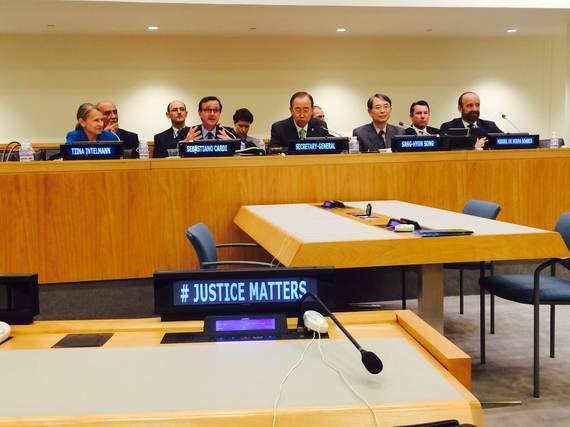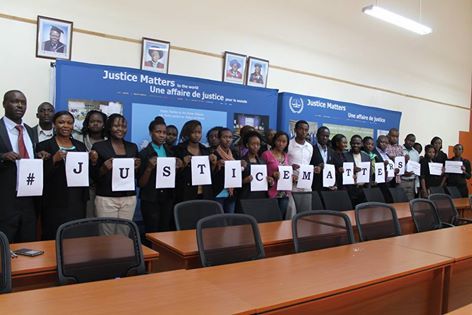Since 2010, the Day of International Criminal Justice has been celebrated on 17 July. It marks the date when the Rome Statute was adopted in 1998, which led to the creation of the International Criminal Court in 2002. This year's celebration at the United Nations headquarters in New York focused on the relationship and the shared values of the UN and the ICC.
The Rome Statute was negotiated in the framework of the UN. Despite having been created as an independent organization, it was decided to bring it into relationship with the UN. This relationship is logical, as the Court contributes to the overall goal of the UN to work towards a more peaceful world where atrocities do not happen or, if they do, unconditional accountability for such crimes is ensured.
As UN Secretary-General Ban Ki-Moon pointed out at the commemoration, the relationship agreement between the two organizations is founded on the shared belief that the cause of peace can only be served if those responsible for the most serious crimes of international concern are prosecuted and brought to justice. In practice, the relationship with the UN may be most important for the Court's everyday work in the field, where the UN provides a range of services and facilities to the Court, such as field security services, and in the technical support the UN provides on issues concerning the testimony of witnesses in cases before the Court. Further, the Court reports annually to the UN General Assembly, and the ICC's Prosecutor is invited to report to the Security Council
A close relationship with the United Nations is also vitally important for the collective work of States Parties to the Rome Statute. Half of the Assembly's activities are carried out in New York by diplomats accredited to the UN, and the Assembly and its different bodies regularly meet at the UN headquarters. States also use UN decision-making to express and foster support to the Court and to the fight against impunity. Largely, political support seems to be there -- General Assembly resolutions and discussions at the Human Rights Council in Geneva show support for the Court, and issues of rule of law and justice have become a mainstream part of the Security Council's work. The Council has increasingly been able to refer to the Court's work in its resolutions and statements. In some instances, UN peacekeepers have received the mandate to support international justice and to cooperate with the ICC.
Despite all this, negotiations of the annual General Assembly ICC-specific resolution negotiations are becoming more and more difficult with every passing year, a sign that the role of justice in ensuring lasting peace is not acknowledged by all. Also, sadly, the Security Council has not been able to refer to the Court some situations where atrocious crimes are happening, where no domestic investigations are happening and where the Court has no jurisdiction absent the Council's referral.
Those who fear and oppose the Court capitalize on silence to claim that the Court is losing support. This year, my office, together with the Court, marked the Day of International Criminal Justice by inviting state officials and the general public to commemorate 17 July together. Over the past month, everyone was invited to participate in a campaign under the general heading "Justice Matters" by expressing their support to the Court through Twitter and Facebook. This is one way of linking government actors, civil society and the rest of the international community to show that we do care and that we all share a common goal. Numerous postings featured statements and photos of ministers, diplomats, legal professionals and scholars, and many others all over the world. As a telling example, some of the posted photographs were taken in a way to avoid identification of the person -- a sign that giving support may carry risk, yet that there is enormous global courage and that support to this historic endeavor may be broader than we thought.

